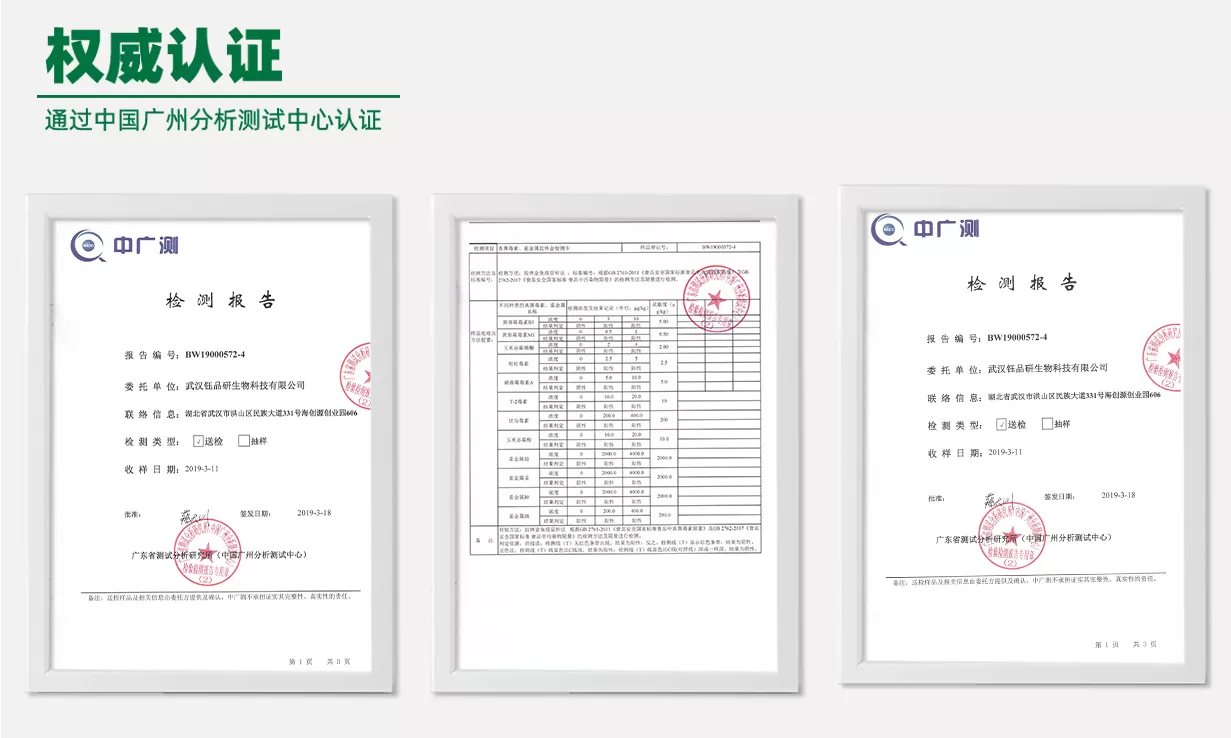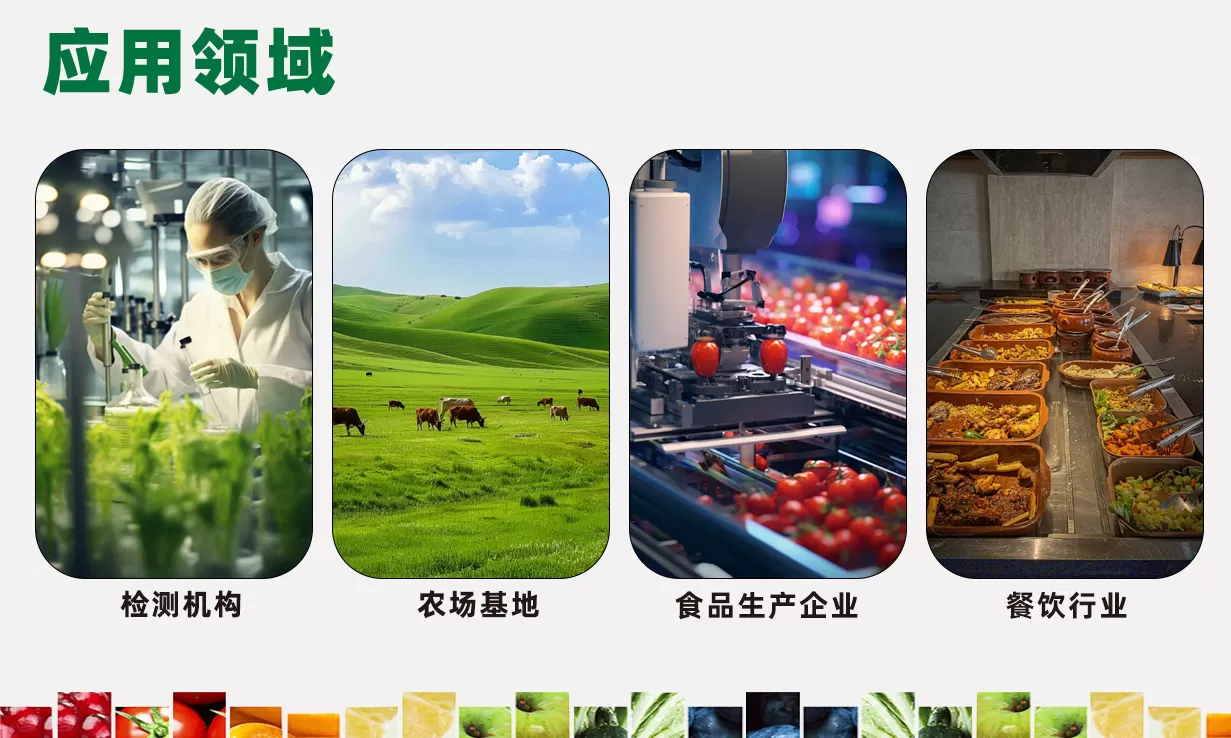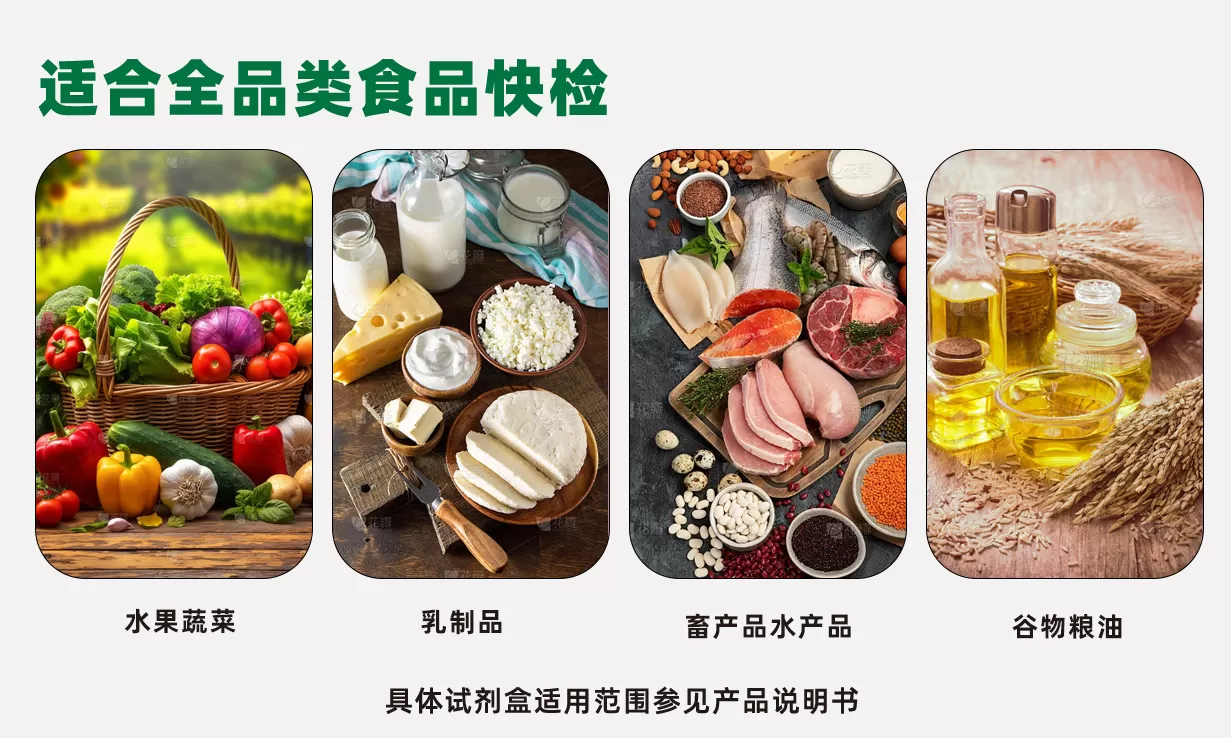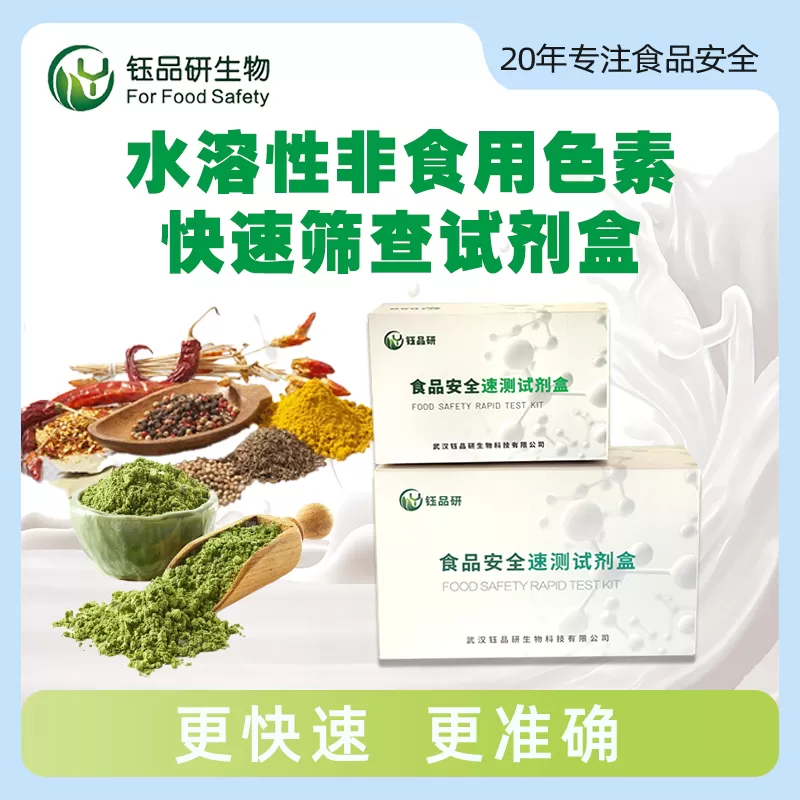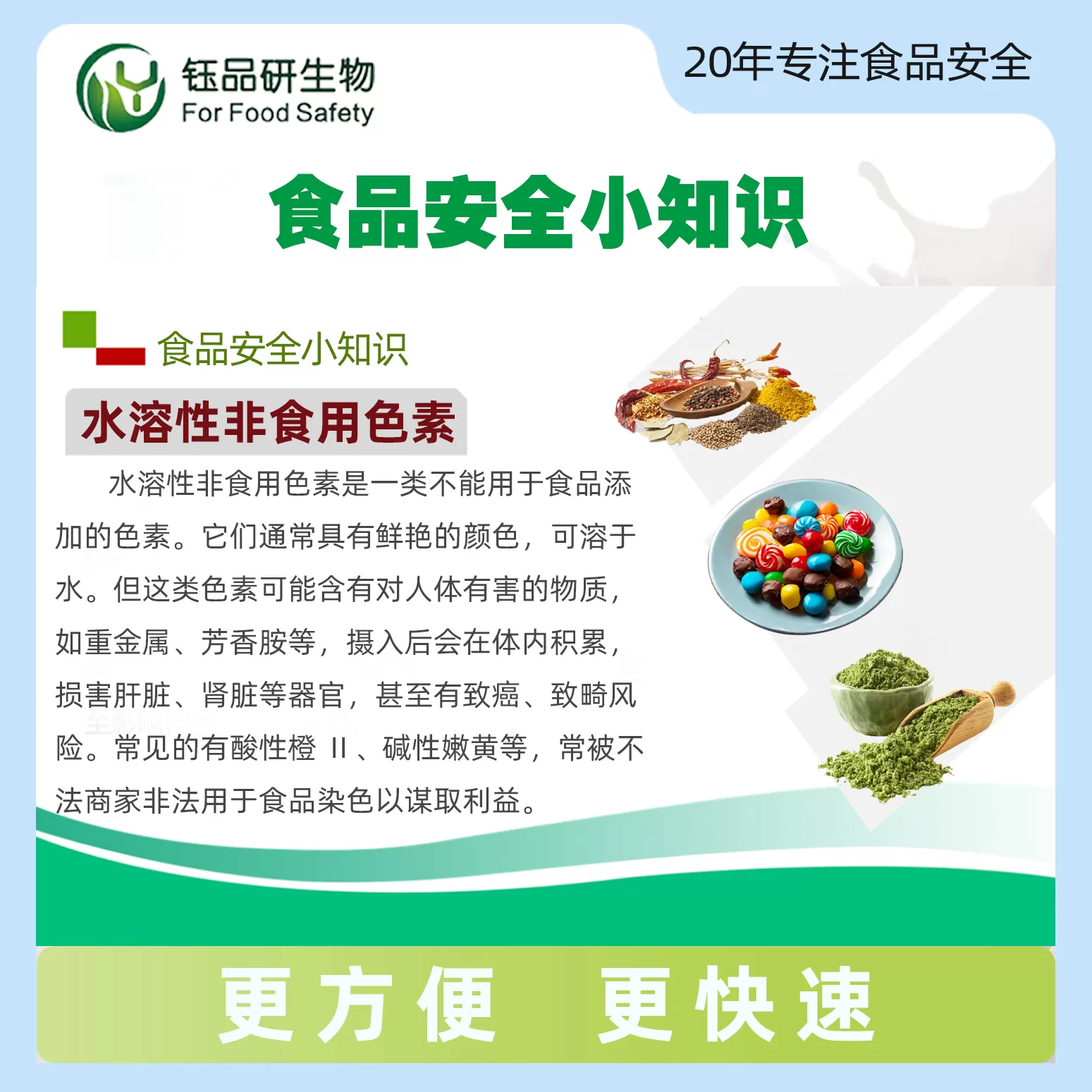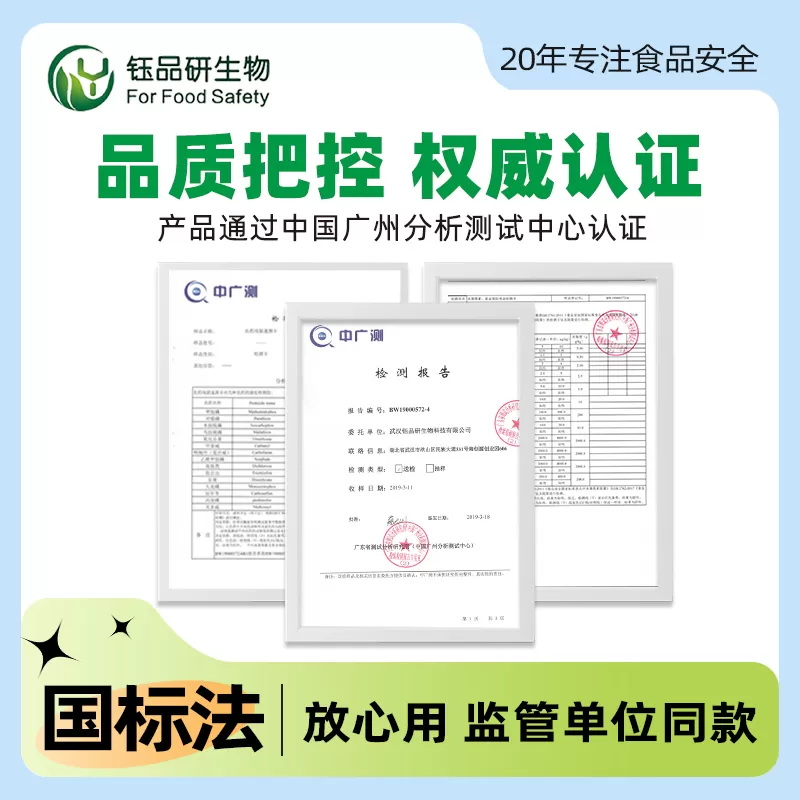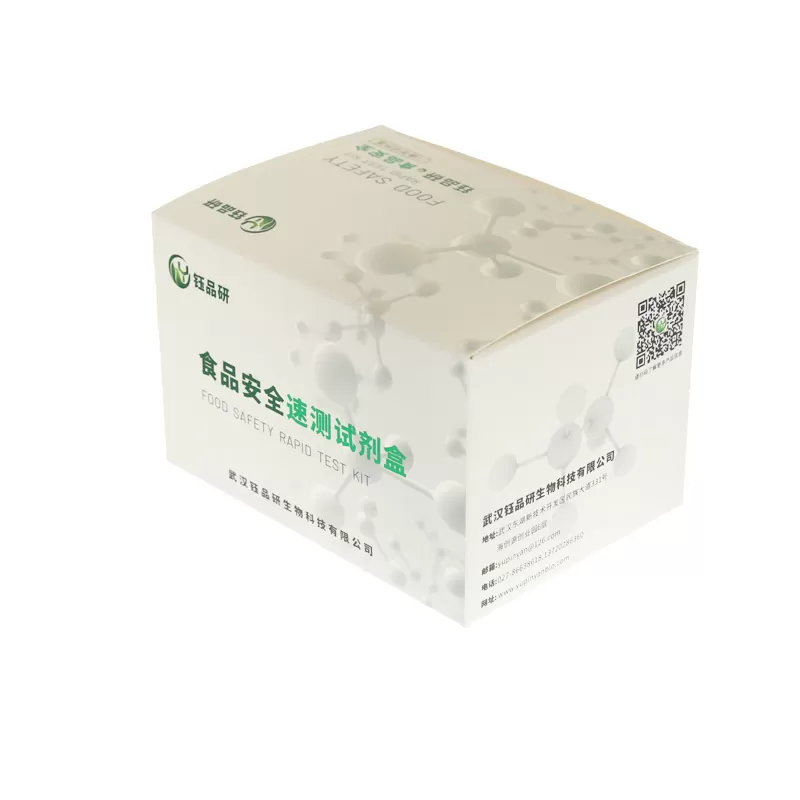Water-soluble non-edible pigment quick test kit instruction manual
product number: YPHM-127
1 introduction, pigments (colorants) are divided into water-soluble pigments and oil-soluble pigments. There are more than 50 kinds of edible pigments allowed in our country, and there are more than 3,000 kinds of known non-edible pigments. As a blind sample, it is difficult to identify which pigments contain it, and it takes a considerable amount of work. This method is a water-soluble non-edible pigment screening method, which is suitable for quick filter of non-edible pigments such as rhodamine B.
2 detection principle, the use of water-soluble edible pigments can be rinsed after the test cotton is adsorbed; and the principle that the non-edible pigments are not easy to remove after the test cotton is adsorbed, rapid screening is edible pigments or non-edible pigments.
3 Detection range, liquid samples such as soda, beverages, colored wine, and solid samples suspected of using non-food pigments.
4 Technical indicators, detection limit: Rhodamine B detection concentration 1.0 µg/mL
5 Sample determination
5.1 Liquid food such as soda, beverages, colored wine, etc.: Take about 30 mL of sample and place it in a beaker, heat to remove alcohol or carbon dioxide, and set aside the sample liquid;
Solid food: Weigh the mashed sample about 10 g, place it in a beaker, add 30 mL of water, shake well and filter, and set aside the filtrate. If the color on some solid food is insoluble in water, use the "Sudan Red Rapid Detection Kit" for detection.
5 Take 10 mL of the treated sample solution in a centrifuge tube, adjust the pH between 8 and 9 with reagent A, add a reagent B cotton ball, put the test tube into a water bath above 90 ° C for 1 minute, stir the test cotton and take it out. Rinse the test cotton with water. The color on the test cotton does not fade into non-edible pigments.
6 Precautions
6 Reagent A is a saturated liquid, and crystals may appear when the temperature is low. If it is not easy to drip out, the liquid can be drawn from the dropper.
6.2 Reagent A and Reagent C are corrosive. Avoid contact with the skin and mucous membranes when using. If it strays into the eye, please rinse with a lot of water immediately.
6.3 This product is only used for initial screening. The final result is subject to the relevant national standard methods.
7 Storage conditions and valid period Reagents are stored in a cool and dry place at 4-30 ° C, protected from light, and the valid period is 12 months.
8 Kit packing list
Specifications: 50 samples/box
Name
Quantity
Unit
Remarks
Reagent A
1
bottle
reagent B
1
pack
Reagent C
1
bottle
straw
1
pack
Repeated use after cleaning
ml centrifuge tube
1
pack
Repeated use after cleaning
1
instructions
